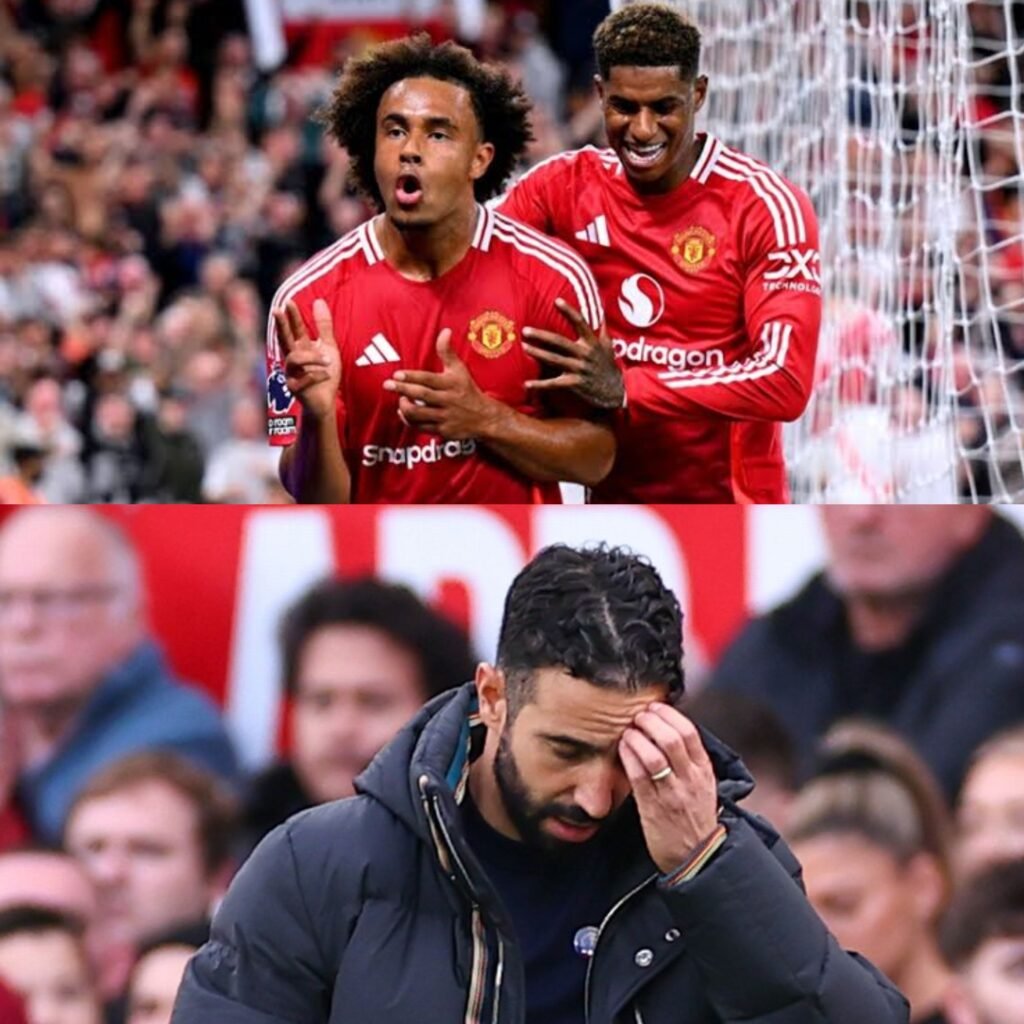Manchester United’s manager, Ruben Amorim, has come under scrutiny following consecutive Premier League defeats against Arsenal and Nottingham Forest. These losses have cast a shadow over the optimism generated by the team’s 4-0 victory against Everton just a week prior, in which Marcus Rashford and Joshua Zirkzee both starred with two goals apiece.
Fans were left puzzled as Rashford and Zirkzee, two of United’s most in-form players, were relegated to the bench for the subsequent matches. United’s performances suffered, raising questions about Amorim’s tactical choices. Speaking to reporters, the Portuguese manager provided insight into his reasoning, emphasizing adaptability and tactical planning as the main factors behind his decisions.
For Amorim, each game presents a unique challenge requiring a tailored approach. He explained that his decision to bench Rashford and Zirkzee was rooted in his assessment of Arsenal and Nottingham Forest as opponents:
“Every game is a new history, so you have to focus on the opponent and what you have seen in training and in games. You want to use different players with different characteristics when you see an opponent, you imagine the type of game. That is the reason.”
Amorim also noted that even Rasmus Højlund, another key attacker who recently scored two goals, found himself on the bench in a previous game. This highlights the manager’s commitment to rotation and selecting players he believes are best suited for specific tactical scenarios.
While rotation can prevent fatigue and keep the squad fresh, it also disrupts momentum. Rashford and Zirkzee, who delivered standout performances against Everton, were unable to replicate their impact when brought on as substitutes in the defeats.

Another notable decision during United’s loss to Forest was the substitution of captain Bruno Fernandes for Mason Mount. Despite Fernandes’ goal and his consistent threat near the box, Amorim felt that introducing Mount’s fresh legs was necessary as the team chased an equalizer.
“I understand that Bruno is really a danger near the box, he scored a goal but Bruno is tired. I felt with Mason Mount he also in set pieces, he can score also because he is very technical and we need fresh legs.”
This decision, while logical from a fitness perspective, drew criticism from fans and analysts alike, as Fernandes remains one of United’s most influential players in tight matches.
Amorim’s tactical philosophy relies heavily on squad rotation and situational adjustments. However, the strategy is a double-edged sword. While it allows players to rest and theoretically offers flexibility, it can disrupt rhythm and chemistry, as seen in the two recent losses.
The absence of Rashford and Zirkzee in the starting lineup was particularly glaring. Rashford’s pace and clinical finishing, combined with Zirkzee’s physicality and ability to hold up play, could have provided United with the attacking edge they sorely needed against Arsenal and Nottingham Forest.
United fans are understandably frustrated, but it’s important to remember that Amorim is still navigating his first season at Old Trafford. Tactical decisions like these are part of a larger learning curve as he seeks to balance squad depth, player fitness, and match-winning strategies.
As United prepares for upcoming fixtures, the onus will be on Amorim to refine his rotation policy and ensure that his best players are on the pitch for critical moments. With Rashford, Zirkzee, and Fernandes all showing glimpses of their potential, Amorim has a wealth of talent at his disposal — he just needs to deploy it wisely.
For now, fans will hope that the lessons from these losses translate into better decisions in the future, as United looks to get their season back on track.